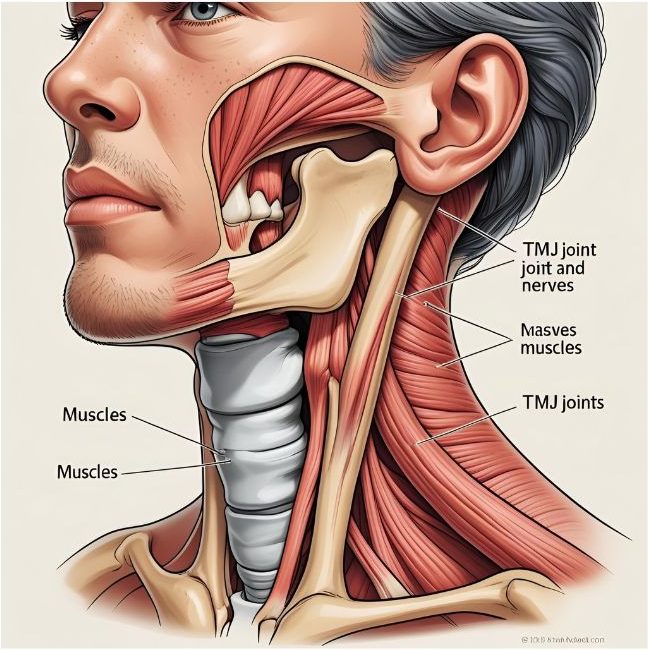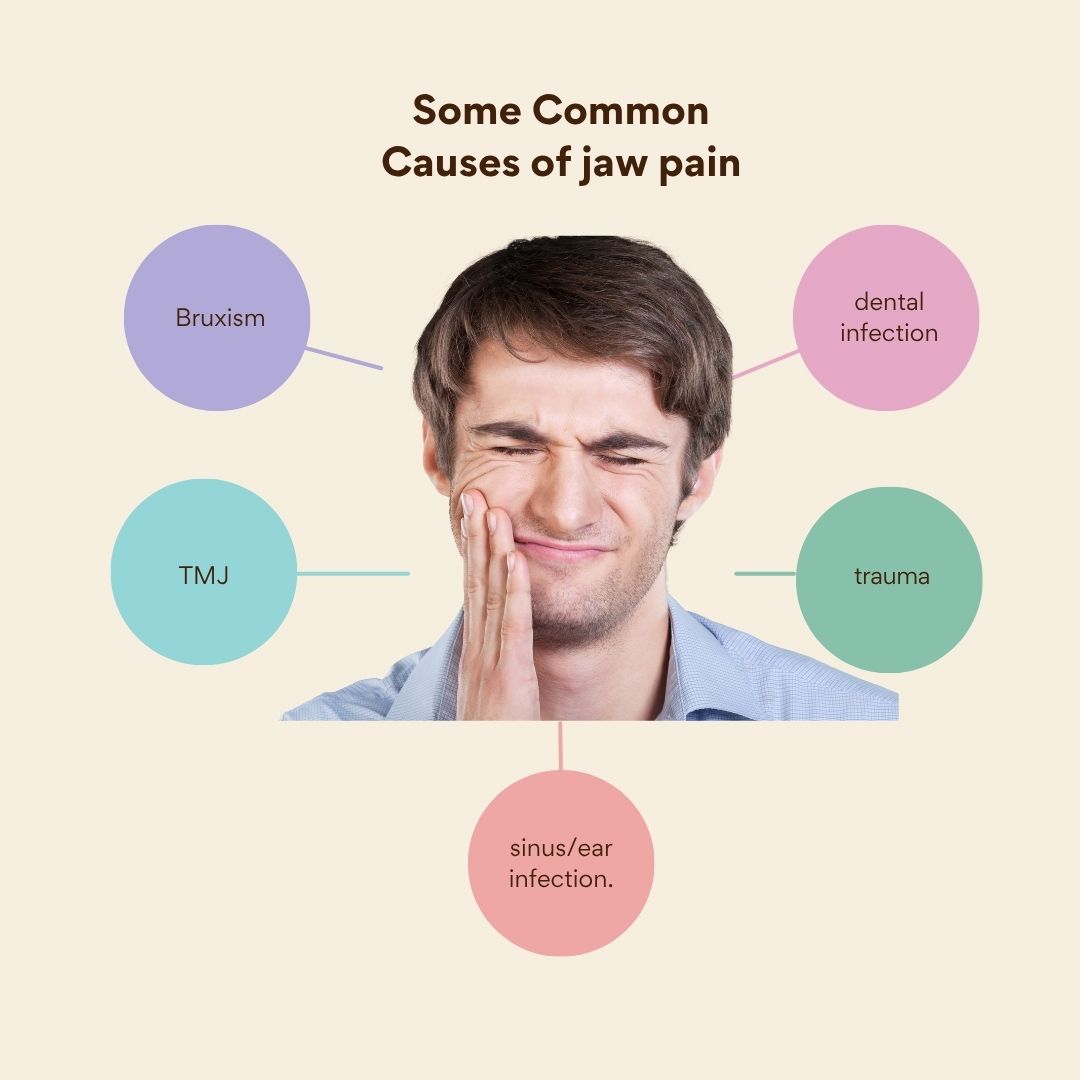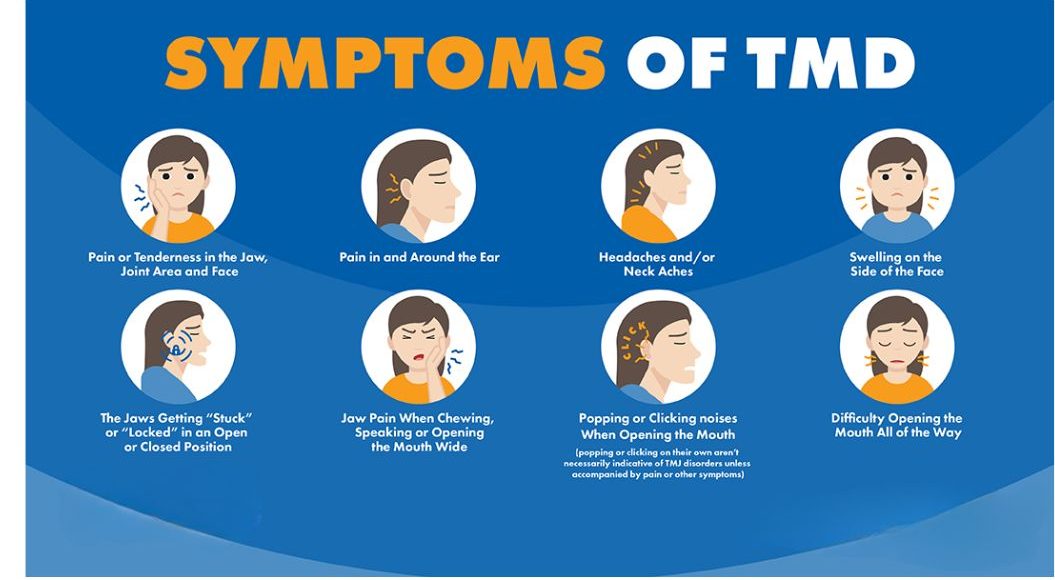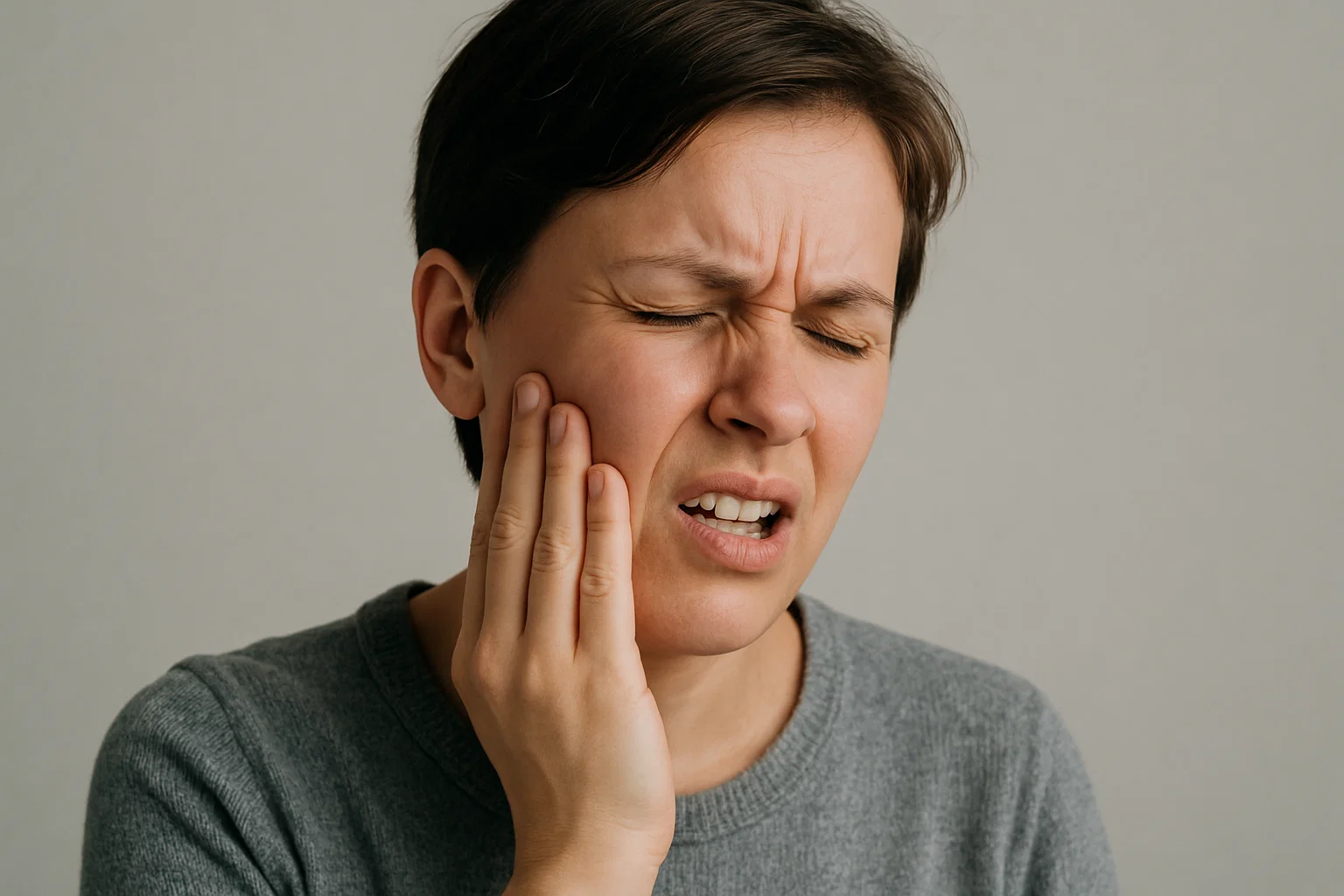Table of Contents
Jaw pain is a growing concern for many people across the country. The need for jaw pain treatment in Nepal is growing, regardless of the cause—stress, trauma, or dental problems. This blog helps you locate the best local solutions by examining the causes, signs, and efficient treatments of jaw discomfort, with an emphasis on diseases related to the TMJ (Temporomandibular Joint) and TMD (Temporomandibular Disorders).
Reviewed by Dr. Manoj Sah, Ph.D. in TMJ Disorders, TMJ Specialist at The TMJ Clinic Nepal—the only TMJ specialist holding a Ph.D. degree in Nepal providing comprehensive treatment for all forms of TMJ-related disorders, TMDs, and Orofacial Pain.

📌What is Jaw Pain and Why It Matters

More than just physical discomfort, jaw discomfort is a problem that can seriously interfere with your daily activities. The temporomandibular joints (TMJs), which are situated just in front of your ears, are where the mandible, or jawbone, joins your skull. These vital joints let your mouth to open and close, as well as the side-to-side motions required for chewing and speaking.
🧠What Causes Jaw Pain?

Finding the best course of jaw pain treatment requires an understanding of its underlying causes. This type of facial pain is often triggered by several common conditions, including infections and joint abnormalities.
1)TMJ disorders and joint issues
The muscles, joints, and bones of the jaw are impacted by temporomandibular joint disorders (TMDs), which frequently result in pain, clicking noises, restricted movement, headaches, and earaches. TMD is twice as common in women, Compared to men especially ages 25-44.
2)Bruxism & Teeth Grinding
In Nepal, bruxism, or teeth grinding, is a common cause of jaw pain. It can happen while you’re sleeping or while you’re awake, and it’s frequently undetected until symptoms show up. It may result in facial pain, TMJ issues, and tooth wear if left untreated. Stress, anxiety, snoring, and breathing problems during sleep are typical triggers to aggravate this disorder.
3)Dental infections and abscesses
Severe jaw discomfort can result from dental abscesses, which are brought on by bacterial infections from cavities, gum disease, or broken teeth. Localized tooth discomfort is one of the early symptoms, but if left untreated, the infection can spread to the cheek and jaw. Fever, swelling, and difficulty opening or closing the mouth are all possible symptoms of severe instances.
4)Trauma or injury to the jaw
In Nepal, one of the main causes of jaw discomfort is injuries sustained in sports, falls, accidents, or attacks. Speaking, swallowing, and eating can all be impacted by a fractured or dislocated jaw. Pain, swelling, bleeding, restricted mobility, and numbness are typical symptoms. In order to prevent long-term harm, prompt medical attention is essential.
5)Ear and Sinus Infections
By applying pressure to the surrounding jaw joints and nerves, sinus infections can result in jaw pain. Ear infections can also cause pain that radiates to the sinuses, jaw, and teeth. Diagnosing these infections can be challenging because they frequently seem like dental problems. To distinguish between them, many patients require a professional checkup.
🚨Symptoms to Watch Out For

Recognizing the early signs of jaw issues can lead to faster recovery and reduced discomfort. Watch out for:
- Persistent jaw pain
- Clicking or popping sounds while moving your jaw
- Difficulty opening or closing your mouth
- Headaches or earaches
- Jaw stiffness, especially in the morning
- Swelling or tenderness around the jaw
If you experience these, seek professional jaw pain treatment in Nepal as soon as possible.
😣How jaw pain affects daily life

The effects of jaw pain go well beyond short-term discomfort. As a result, there are several ways in which this illness can completely disrupt your life:
1)Eating difficulties:
Many people with jaw discomfort have to change their diets by avoiding hard, crunchy, or chewy foods since it makes chewing painful. This restricted diet might result in nutritional issues in addition to decreasing meal enjoyment.
2)Communication difficulties:
When jaw movement hurts, speaking becomes challenging. Social relationships, professional contacts, and general communication confidence can all be impacted by this.
3)Sleep disturbance:
A lot of persons with jaw abnormalities tighten their jaws or grind their teeth when they sleep, which results in poor sleep quality and fatigue during the day. Finding a comfortable sleeping posture may be difficult due to the ongoing discomfort.
4)Concentration problems:
Long-term pain affects concentration, which lowers productivity at work or school. Constant discomfort is a distraction that takes focus away from crucial tasks.
5)Social impact:
Having jaw pain might make it difficult to engage in social activities like eating, laughing, or having lengthy conversations. In order to prevent suffering, a lot of people with severe jaw problem end up avoiding social events.
Treatment Options: From Home Remedies to Medical Help
Finding comfort from jaw pain, depending on the root cause and severity of your jaw problem, you may be able to find relief through home remedies or expert treatments. A good strategy addresses the underlying causes as well as the symptoms.
1)Simple Medications for Fast Jaw Relief
NSAIDs, or prescription drugs such as ibuprofen and naproxen, can reduce TMJ pain and inflammation. Although paracetamol reduces pain, it has no anti-inflammatory properties. Because of the risks of ulcers, kidney problems, and drug interactions, they are better used for short-term relief from extreme TMJ symptoms rather than long-term use.
2) Jaw exercises and physical therapy
For diseases of the jaw, physical therapy provides non-invasive relief. Important exercises consist of:
- Pull your chin back to create a “double chin” and keep it there for five seconds.
- Tongue lifts: When opening or closing your jaw, press your tongue against the roof of your mouth.
- Press under the chin and open your lips slowly to resist opening
These exercises increase mobility, strength, and balance. For optimal effects, do two to three times each day.
3)Mouthguards and Dental Equipment
Mouthguards that are carefully fitted can help control jaw pain, particularly that caused by teeth grinding. Custom dental devices enhance bite alignment, TMJ function, and muscle balance, in contrast to over-the-counter guards that only protect teeth. They are made of soft (OTC) or strong resin (custom) materials and are typically worn at night. In cases of severe TMJ or TMD, daytime use may also be necessary.
4)When surgery is considered
Only when all other therapies have failed is jaw surgery considered. Open-joint surgery, arthroscopy, and arthrocentesis are among the options. After one to three days in the hospital, recovery takes four to six weeks. Because of the adaptive capacity of TMJ towards TMD using conservative modes of management, doctors in Nepal typically attempt non-surgical jaw treatments first.
Where to Get Jaw Pain Treatment in Nepal?

TMJ Specialist: With a Ph.D. in the field TMD and Orofacial Pain, Dr. Manoj Sah is the first and only expert on managing Temporomandibular Joint (TMJ) disorder in Nepal. He works out of The TMJ Clinic Nepal, a facility that specializes only in identifying and treating TMJ issues, TMDs, and and jaw-related discomfort. Dr. Manoj Sah is among the most skilled specialists in the nation to consult if you have severe jaw related problems.
If you’re searching for the best jaw pain treatment in Nepal for TMJ disorder, or wondering where to get affordable jaw pain treatment in Kathmandu, then Dr. Manoj Sah is the top-rated jaw pain specialist in Nepal.
“Book a consultation with Dr. Manoj Sah at The TMJ Clinic Nepal today to get permanent relief.”
🦷How to reduce jaw pain?
Apply warm or cold compresses, eat soft foods, avoid jaw clenching, and do jaw exercises. If pain continues, see a TMJ specialist for treatments like mouthguards or therapy.
🦷 What is the main reason for jaw pain?
The main causes are TMJ disorders, teeth grinding (bruxism), jaw injuries, dental infections, and stress-related muscle tension.
🦷 Why does one side of my jaw hurt?
One-sided jaw pain can be caused by TMJ issues, muscle strain, dental problems like infections or abscesses, or nerve irritation.
🦷 Is jaw pain caused by stress?
Yes, stress can cause jaw pain by leading to muscle tension and teeth clenching or grinding (bruxism), which strain the jaw muscles and joints.
Conclusion: Finding Help in Nepal for Your Jaw Pain
Daily living can be significantly impacted by jaw discomfort, but the only way to cure it is to determine its origin, which may include infections, TMJ issues, or teeth grinding. Chronic issues can be avoided with early treatment.
Jaw clicking, locking, chewing pain, face swelling, or frequent headaches are typical warning indicators. Simple therapies include over-the-counter medications, jaw exercises, and personalized mouthguards to help the majority of individuals get better. If these don’t work, surgery is the last option.
Seek medical attention right away if there is swelling or infection, if the discomfort persists for more than a week, or if moving the jaw becomes challenging.
Effective care is accessible in Nepal. Long-term relief is possible with the correct specialist’s assistance, allowing you to resume speaking, eating, and living pain-free.
“One Jaw, One Life – Treat It Right with Expert TMJ Care.”



